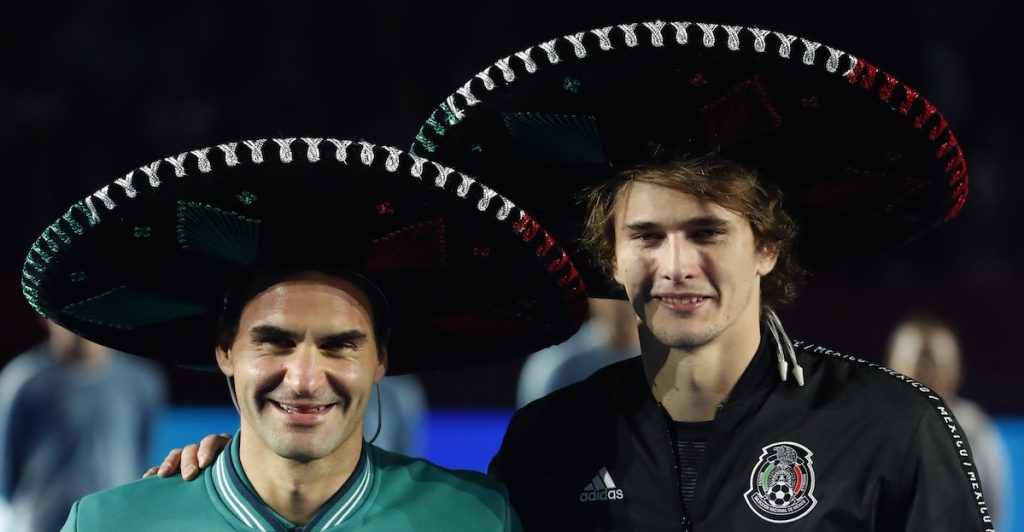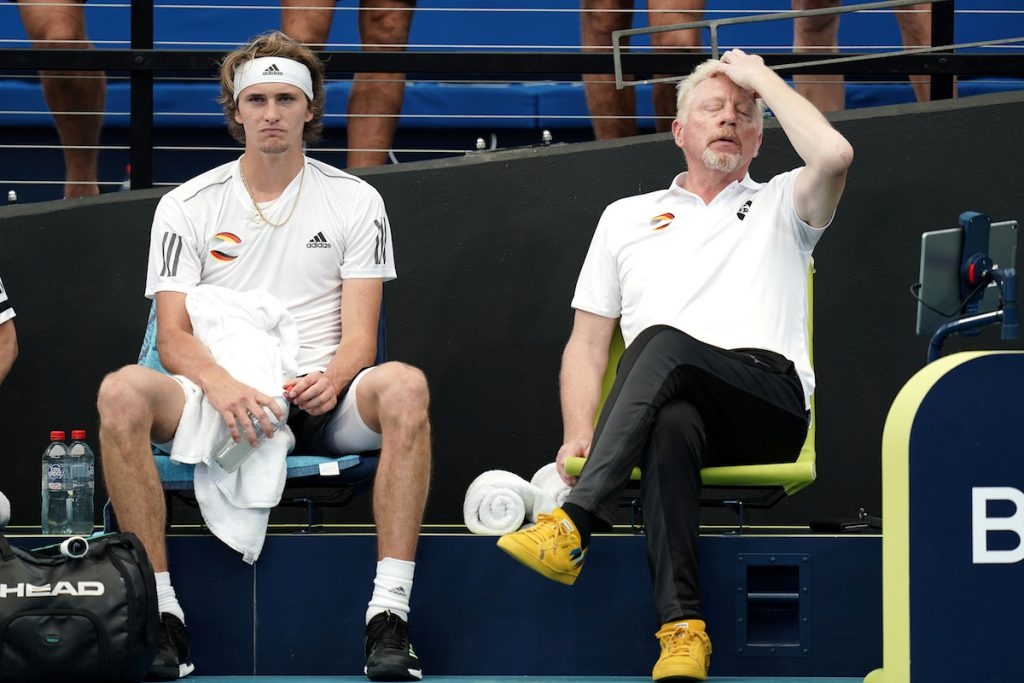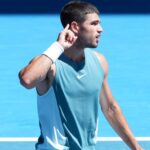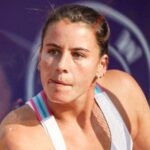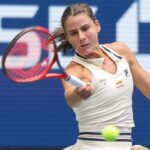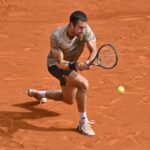Zverev, the unexpected process
The German’s first tournament of the year was horrific, getting us all back to the “what’s wrong with Sascha” question, but in Melbourne Alexander Zverev seems to have found the start of crucial answers for his future.
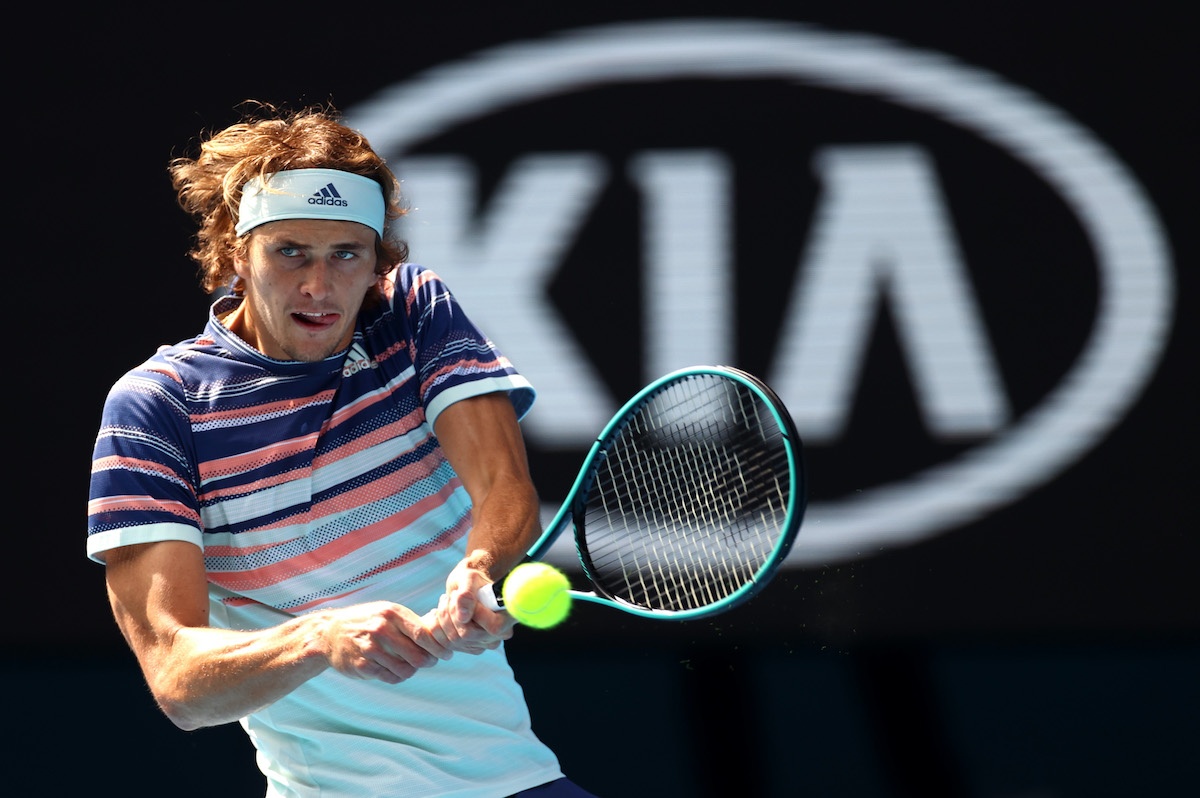 Alexander Zverev qualified for the fourth round
Alexander Zverev qualified for the fourth round
He was never supposed to struggle this much, and that’s actually maybe why he did. Presented too soon as the next big King, Alexander Zverev might have believed it too easily and strongly. And after winning the ATP Finals in 2018, despite still lacking that Grand Slam big break, despite in the opposite proving to have quite the mental block in Majors, the German surely thought again that he was on the right track to tennis heaven. He was not. He might have looked like he was about to see the light at the end of the tunnel at the end of 2019, he might still be a Top 10 player but Alexander Zverev was and still is far from solving his puzzle.
After a nightmarish start of the year, not only not winning a single match in the ATP Cup, but also displaying a worrying level of game, he has put both feet forward in Melbourne. He had the ideal draw to do it until now, but still seeing him serving as he always should, not collapsing on his forehand and most of all having a top player attitude out there has been massive progress.
Through the ATP Cup, he was far from it and so it’s good to see he took the right lessons. Gone are, for now, the sad face, the terrible body language, and this outbursts of anger and frustration. Gone is, for now, the deep doubt that can creep back to his brain and so game at any time, turning a player that should already be contesting Grand Slam title to an unsolved mystery. Even for his team. Even for Zverev himself. Like, how to explain his out of this tennis world serve troubles ? He can’t be a top player without that shot, not with his aggressive game and his body type.
He’s always been a strong server. But for more than a year now; his ambitions and natural confidence are sunk by that serve way too often: the first one unable to hit aces nor right spots, the second one always on the verge of the double fault. Off rhythm, off everything. There’s not a shot more “in the brain” than the serve: its struggles can defy all logic and all talent, and it can drive nuts any perfect technique. It’s a confidence shot, and when it goes awry, it can take dramatic proportions. It was enough to hear Zverev yelling of distress in Russian at his dad during his loss against Stefanos Tsitsipas (6-1, 6-4) in the ATP Cup, or looking close to tears while getting schooled by Denis Shapovalov (6-2, 6-2) at the same event to understand the depth that struggle can take.
“My serving isn’t back yet. Simple as that. I’m not feeling my serve, that’s no secret”, said the German in Brisbane. “I mean, I’m doing double faults. I’m serving 120 kilometers an hour, that’s not really going to cut it. I just need to get it back somehow. It’s just practicing and maybe going on the court and doing a little bit more of that. I have two weeks until the Australian Open and I hope I can get it back until then, but right now it’s at a level where it’s not going to do it for me.”
Zverev, an autumn on tour with Federer
Zverev is not the first top player to go through a rough time with the serve: Novak Djokovic had a nightmare with it in 2009-2010 when he switched racquets, Rafael Nadal through his career has had dry spells too when he was low on confidence, Andy Murray has been in a battle with his second serve from day 1, Maria Sharapova’s one is a constant work in progress since her shoulder surgery, Angelique Kerber has had to learn to play with a forever weak one. And each time Zverev hits a double fault nowadays, people are having flashbacks of Anna Kournikova.
[bloc_twitter src=”https://twitter.com/AlexZverev/status/1220929394065076225?s=20″]
The weird thing with the German right now is that at the end of last season, from the Laver Cup to the Beijing semi-finals, the Shanghai final, and the ATP Finals semis, he seemed to have finally figured out again. By winning matches, he got enough confidence again to hit that shot without his brain coming in the way. It seems that between the ATP Cup and Melbourne, an emergency service camp has been set up: “I’ve been on the practice court a lot, I’ve served a lot.” Simple, no? Yes, but here is the deal: he did then what he should have done the whole winter.
Because what happened in the offseason for him to regress this much on that shot? Well, the first thing that comes to mind is a question: which offseason? As Roger Federer was touring South America in November and visiting China at the end of December, so was Sascha Zverev. If exhibitions are not as tiring as matches, they are also not as work-worthy as a proper pre-season training block. Especially also when Zverev had to have an eye-surgery early December. But when Federer decided to skip the ATP Cup to make sure he could get the needed work in, the German passed on the option and went to Australia.
The only thing that Alexander Zverev won in Brisbane is another crisis. A personal one and a public one as he went down again and again in a mess of broken racquets, whining, yelling and bad play.
“I think I just didn’t practice enough, to be honest. I’m on seven or day eight of tennis. It’s tough. I didn’t play enough tennis yet. I will pick that up. Now I will practice as much as I can. I am still practicing here five, six hours a day”, explained Sascha after losing to Alex De Minaur (4-6, 7-6, 6-2) in Brisbane.
It’s tough to understand how, with such a huge issue on a shot that is crucial for his whole game and after such a rough 2019, Zverev didn’t put out a whole “let’s fix that serve and recover those nerves” in the winter. The guy is such a great player that maybe they’ve underestimated the issue, or maybe they thought it was dealt with already since the end of 2019, or maybe some undisclosed health issues, out of his eye-surgery, came in the way.
Hitting rock bottom at the ATP Cup, a blessing in disguise ?
This game struggle could have also come from some personal turmoil we don’t know about, as when such a player loses his game and his mind, again and again, sometimes it means that there’s an issue off the court too. And his attitude since a year now often said all about the stress and frustration that are for now eating him from inside. But again, the serve is such a mental shot that sometimes there are just no objective reasons for its struggle: it’s just the player’s brain being blocked and fixated on it.
Proof being that through that first week in Melbourne, Zverev didn’t through a single rough patch on that shot. Hitting rock bottom at the ATP Cup might have been a blessing in disguise for the German. It took his feet back to earth brutally but surely. Zverev, who was World No. 3 in November 2017, has not proved to be the easiest one to deal with not the easiest one to admit when things were going wrong per his own fault. Not used to listen to someone else than his father, not used to do things he doesn’t want to, Zverev had the end of the patience of Juan Carlos Ferrero and Ivan Lendl.
His father is clearly now doing everything he can to help and he knows what he’s talking about, but the feeling remains that what may also be needed is an external hard look on what’s going on. A hard look that Zverev would finally decide to trust. At 22 years old, just starting what should still be a very successful career, Zverev is in the first crisis of his career and as it’s now more or less been lasting for a year, it has to be considered as deep and serious. The issue is that his ranking has been lying to him for a while: he hasn’t played like a Top 10 player in most of 2019 and only saved his status in the last weeks of the year. It’s tough to admit you’re in crisis when your ranking is still a single digit. But in Melbourne, we’ve seen the start of an epiphany:
“It’s going to be a process in every match. It has been getting better. I’m happy to be through in straight sets (6-2, 6-2, 6-4) against Fernando Verdasco who can beat anybody. So I’m really happy about that.”
Zverev must contain the rise of other young players
He’s also happier in general. After spending 2019 embroiled in a potentially very costly dispute with the manager he fired before joining Roger Federer and Tony Godick’s Team8, after learning that trying to break a contract is not an easy thing and that lawyers and other businesses are indeed time-consuming for players when there are not the right people around them, Zverev seems to be able to only focus on tennis now. Godsick has put both hands on solving those off-court issues and he knows a thing or two about branding a tennis champion.
[bloc_twitter src=”https://twitter.com/AustralianOpen/status/1220241164273700864?s=20″]
Zverev has always been deeply convinced he was to be the next big thing, and he was and remains right to be: he got the game, he got the money-shot with surely one of the greatest backhands out there, he got the charisma and the fighting spirit. But there’s one thing he should be reminded time and time again: if the Big 3 has been that good it’s also because they’ve regularly looked in the mirror to tell themselves hard truths, always been surrounded by people who were telling them hard truths, and never thought they have arrived at the top of the mountain.
With young players like Stefanos Tsitsipas and Daniil Medvedev on the high rise, Zverev needs to react very quickly now if he’s to reign on that generation because when rivals start to smell blood and identify a weakness, they’re going to push that button until the end of times. At this level, you can’t afford any holes in your game or your mindset. This whole tennis ordeal – as it is one for someone with Zverev’s ambitions and temper – might be a good thing: better to take a wall so early in his career and learn from it, than going on too long with big issues lying under the surface and see them burst out when it’s too late to be fixed. 2020 will be a massive gut test already for Alexander Zverev who needs to accept that learning the hard way is always going to be part of the becoming-a-champion’s deal.
